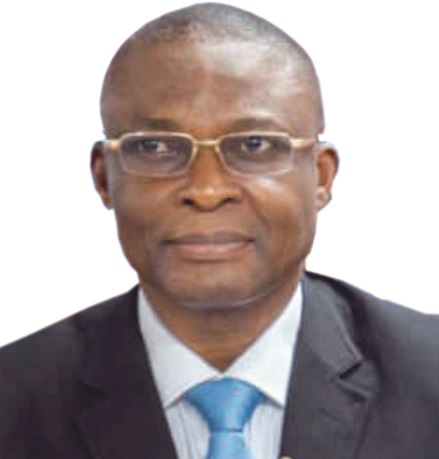By Ralph Simeon Sesay
The Office of the former President of the Republic of Sierra Leone has been exonerated at the ongoing Commissions of Enquiry with regards the management of funds meant for the Ebola scourge in Sierra Leone.
Witness for the state, Permanent Secretary at the Ministry of Trade and Industry and former Principal Assistant to the Secretary to the President, State House, Mr. Reginald Thomas, told the Commission tha the Office of the former Secretary to the President, as per the management of the Ebola funds, was charged with the responsibility of clearing all payment vouchers approved by the National Ebola Coordinator and the fiduciary agency, BDO.
Mr. Thomas stated that part of the verification and subsequent clearing of the payment vouchers had included looking at invoices and payment vouchers raised by the National Ebola Response Center, specifically looking for the signature of Mr. Palo Conteh and the stamp of BDO in all the payment vouchers.
He continued that situations have arisen when the State House rejected to clear certain payment vouchers because they do not have the signatures of Palo Conteh, who is the National Coordinator NERC and the stamp of the fiduciary agency, BDO.
The witness vehemently denied accusations made by another state witness, Mr. Festus Kuyembeh, then Director of Financial Services, Ministry of Health and Sanitation, that he was one among two (2) signatories to the Health and Emergency and the Ministry of Health Ebola accounts held at the Sierra Leone Commercial Bank.
Mr. Festus Kuyembeh has earlier told the Justice Biobele Commissions of Enquiry that there were six (6) signatories to the Ebola Emergency, and the Ministry of Health and Sanitation accounts, held at the Sierra Leone Commercial Bank and this included Mr. Reginald Thomas, Principal Secretary to the Secretary to the President, State House, Mr. Alfred Campbell, Admin Director of Finance office of the President, Permanent Secretary, Ministry of Health and Sanitation, Mr. Sadiq Kapuwa, Director of Finance, MOHS, Mr. Festus Kuyembeh and a representative from UNICEF and the World Health Organisation, respectively.
Mr. Kuyembeh had further told the Commission that Le15 billion and Le453 million were withdrawn from such accounts without supporting documents.
In another development, a witness from the fiduciary agency, BDO, has also told the Commission that Le640 million was transmitted electronically to Splash Mobile company for onward payment to Ebola hazard workers, but this did not reach the intended beneficiaries largely because of a number of problems, including inactive phone numbers during the period of payment, incomplete phone numbers as part of records presented to Splash, etc.
Splash, the BDO witness continued, could not properly reconcile and refund back the monies. He could not state whether Splash is still operating in the country.
The State has also presented a representative from the Bank of Sierra Leone to tender evidence on the Bank’s supervisory role. She told the Commission that during an assessment made by the Bank of Sierra Leone, some few years ago, they discovered that insecured loans were weighing on the Bank’s operations and acknowledged that these loans had included politically exposed persons.
The witness also told the Commission that the Banking Act had clearly stated that commercial banks are at liberty to give loans provided they do not exceed the 10% per capital base of the bank. She concluded that loans to Politically Exposed Person, to the best of her knowledge, had not contravened the Banking Act of Sierra Leone.
The BSL witness also told the Commission that the zero audit policy is internal to the Sierra Leone Commercial Bank. She noted that it is outside the remits of the Bank of Sierra Leone.
The Sierra Leone Commercial Bank, the witness continued, was recapitalized with external funds from another institution or by shares. This, she noted, was done after the Board was dissolved. The dissolution, the Bank of Sierra Leone witness stated, did not have anything to do with the recapitalization process of the Bank but mainly bordered on the weak performance of the bank at the time and forms part of the tools used by the Central Bank to bring sanity to the operations of the bank.
Defense counsel for persons of interest also squeezed the witness on the freezing orders sent by the Bank of Sierra Leone to the Sierra Leone Commercial Bank, stating that the orders had affected the performance of the unsecured loans.
The witness replied that the orders were general and had been issued to the banks, starting from the 6th July, 2018 to 2nd August 2018. The orders from the Bank of Sierra Leone were five and were very clear and specific, allowing minimum withdrawals by PEPs at a particular point in time, the BSL witness concluded.
At Commissions of Inquiry… State Witness Exonerates Office Of The President


